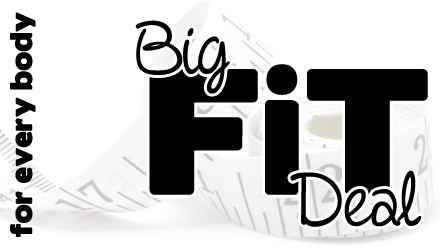Lately I’ve been paying attention to television commercials. Kind of a ridiculous thing to do, especially when I watch most TV on my DVR, right? But I wanted to conduct a little experiment to see which commercials, if any, included any fat people. Is my body type represented on the telly? I bet you’re not surprised to hear that it rarely is.
This is what I look like when watching TV commercials.
Here is a list of commercials that (seemingly purposefully) exclusively showcase thin bodies. Please note the varying levels of irony in the products listed here.
- Moto X Phones/AT&T
- Wendys
- MVP Health Care
- Belvedere Vodka
- TJ Maxx
- Macy’s
- Absolut Vodka
- Kohl’s
- Victoria’s Secret (no surprise there)
- iPhone 5/AT&T
- BMW
- Kay Jewelers
- McDonalds
The message to me, as a viewer, is that these companies only want thin people to use their products. Now, I doubt that’s their intention (I’m sure that even if they don’t like my body, they would love my money!), but that’s how these ads make me feel: unrepresented, unwelcome, unwanted.
A lot of commercials that do feature a variety of body sizes are “reality” ones, such as those with non-actors giving testimonials. A few notable companies that do use actors of various shapes and sizes: Microsoft (how dare you make me like you!), Little Caesar’s, Big Lots, and Bank of America.
Maybe you’re wondering why this matters. After all, how many of us actually pay attention to advertisements? You might turn away from the TV when the commercials start, but children often don’t. Imagine being a fat young person, and never seeing yourself represented anywhere (except in anti-obesity ads). How would that make you feel? I’ll tell you how it makes me feel as an almost-40-year-old adult women: lousy. The message it sends is, “You aren’t good enough for this product or service unless your body looks a specific way.” Or, more succinctly put: “Our stuff – not for fatties!”
I wonder: If we confronted these companies, would they be surprised at the lack of diversity, or surprised that we noticed? How intentional is this? Probably (and sadly) very.
The fact is, the less often we see body diversity, the more likely we are to shame, hate, and fear bodily differences.
So, what can we do? You can start by talking to the companies that practice this type of advertising. Ask them to be more diverse in their commercial casting. You can also thank the companies who do showcase a variety of bodies. There are all sorts of ways to get in touch with corporations, from email to Facebook to Twitter. Speak up! And then there’s the most powerful way to have influence and make change, whether we like it or not: Choose where to spend your money.
For the record, the shows I was watching while conducting this little experiment were The Walking Dead, Agents of SHIELD, Arrow, Glee, White Collar, Revenge, and Elementary. (No comments from the peanut gallery about my TV-watching habits, thank you!)


